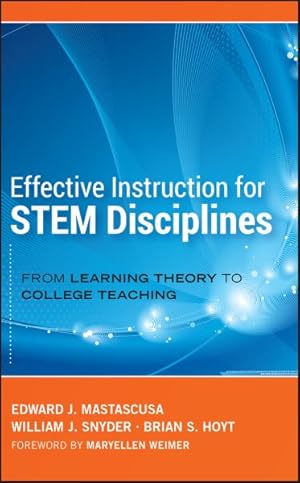This groundbreaking book offers information on the most effective ways that students process material, store it in their long-term memories, and how that effects learning for long-term retention. It reveals how achieving different levels is important for transfer which refers to the learner s ability to use what is learned in different situations and to problems that might not be directly related to the problems used to help the student learn. Filled with proven tools, techniques, and approaches, this book explores how to apply these approaches to improve teaching.
Praise for Effective Instruction for STEM Disciplines
"The world of today's learners is a multimode, information-intensive universe of interactive bursts and virtual exchanges, yet our teaching methods retain the outdated characteristics of last generation's study-and-drill approach. New pedagogical methods, detailed and justified in this groundbreaking work, are essential to prepare students to confront the concerns of the future. The book challenges our traditional assumptions and informs the science, technology, engineering, and mathematics (STEM) community of the latest research on how the brain learns and retains information, how enhanced student engagement with subject material and its context is essential to deep learning, and how to use this knowledge to structure STEM education approaches that work."--David V. Kerns, Jr., Franklin and Mary Olin Distinguished Professor of Electrical and Computer Engineering, and founding provost, Olin College
"Every STEM faculty member should have this book. It provides a handy introduction to the 'why and how' of engaging students in the learning process."--David Voltmer, professor emeritus, Rose-Hulman Institute of Technology, and American Society for Engineering Education Fellow
"The poor quality of math and science education and the shortage of well-qualified graduates are acknowledged almost daily in the U.S. press. Here the authors provide much-needed insights for educators seeking to improve the quality of STEM education as well as to better prepare students to solve the problems they will confront in our increasingly technology-driven world."--Keith Buffinton, interim dean of engineering, Bucknell University
![]()
